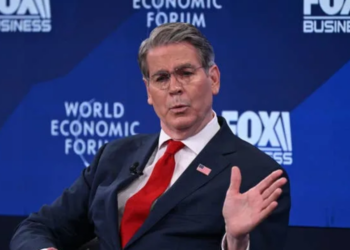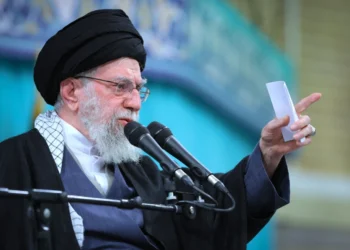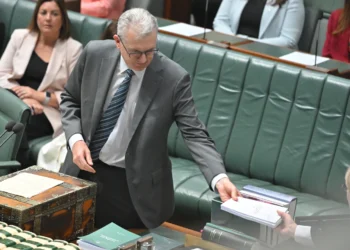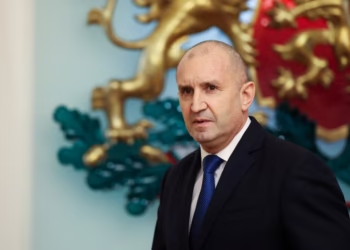MADRID (Realist English). Santos Cerdán, a former top aide to Spanish Prime Minister Pedro Sánchez, was ordered into pre-trial detention on Monday as part of a growing corruption investigation linked to public construction contracts — a case that now looms over the highest ranks of Spain’s ruling Socialist Party.
Cerdán, long considered Sánchez’s political right hand and once the third most powerful figure in the PSOE, is accused of accepting kickbacks from construction giant Acciona alongside former transport minister José Luis Ábalos and political operative Koldo García. Prosecutors allege the three formed what has been dubbed a “toxic triangle” — a network involved in influence peddling and illicit contract awards.
All three deny the accusations.
The judge presiding over the case, Leopoldo Puente of Spain’s Supreme Court, stated that there is “sufficient evidence” that the group may have operated as a criminal organization, securing public tenders in exchange for bribes. He ruled that Cerdán posed a clear risk of tampering with evidence and therefore must remain in custody.
The development adds pressure on Prime Minister Sánchez, who has seen his minority government weakened in recent months. He is also facing criticism abroad after refusing to endorse NATO’s new collective defence spending target last week.
In a brief statement following the ruling, Sánchez distanced himself from his former ally: “Now is the time for the justice system to determine responsibility.”
Still, Sánchez’s close political association with Cerdán — whom he appointed chief negotiator for the controversial Catalan amnesty law — is complicating efforts to contain the fallout. The amnesty was key to Sánchez’s return to power after last year’s inconclusive election and remains his coalition’s only major legislative victory.
The case also coincides with separate corruption or misconduct investigations involving Sánchez’s wife, brother, and attorney-general — all of whom deny any wrongdoing.
Opposition leaders quickly seized on the court’s decision. Cuca Gamarra, secretary-general of the conservative People’s Party, said: “Sánchez is prime minister because of Cerdán. And if Cerdán falls in the courts, Sánchez should fall politically.”
Even former coalition partners joined in. Ione Belarra, leader of Podemos, said the scandal had “irreparably damaged democracy” and betrayed the trust of left-leaning voters: “It is terrible for progressive Spaniards to see how the Socialist Party has again looted the public purse.”
Cerdán, appearing in court Monday, reportedly described the investigation as a politically motivated attack. Nonetheless, with Spain’s executive already faltering in parliament and struggling to contain public disillusionment, his arrest marks a critical blow to Sánchez’s credibility — both at home and in the EU.


















